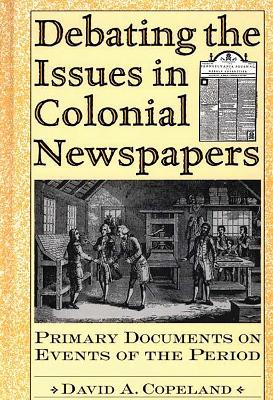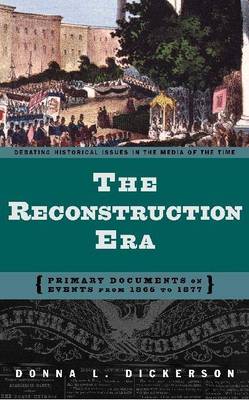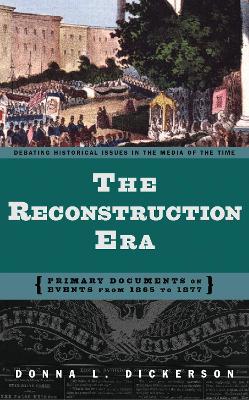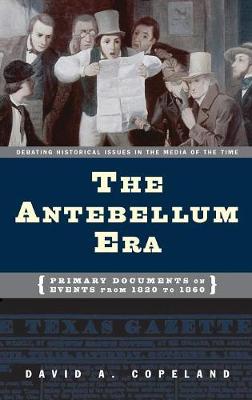Debating Historical Issues in the Media of the Time
4 total works
For every major event or issue of the colonial period, newspapers printed the opinions of the day, in many cases attempting to influence public opinion. Issues such as medical discoveries, education, and censorship are covered in this collection along with important events such as the French and Indian War, the trial of John Peter Zenger, and the Boston Massacre. Each chapter introduces the event or issue and includes news articles, letters, essays, even poetry representing both sides of the argument as they affected Americans. Each document is preceded by an explanatory introduction. This is the only collection of primary source documents from colonial newspapers on the events of the era and will be a valuable tool for research and classroom discussion.
Reconstruction Era: Primary Documents on Events from 1865 to 1877
by Donna L Dickerson
Firsthand accounts offer students, scholars, or anyone interested in the pivotal period preceding the Civil War a look at how America's press covered important national issues and events of the day, from the passage of the Missouri Compromise through John Brown's raid on Harper's Ferry. Using editorials, letters, essays, and news reports that appeared throughout the country, Copeland reveals how editors, politicians, and other Americans used the press to influence opinion. These are the primary documents that displayed the pulse of the nation.
Issues such as abolition, education, and women's rights are discussed along with important events such as the nullification crisis of 1832, the Mexican War, and the Kansas-Nebraska Act. Each of the 29 chapters introduces an event or issue and includes news articles that represented various American opinions. These introductory essays and primary-source documents illustrate how newspapers and magazines presented matters of great national import, in an age when the opinions of the press frequently in influenced broad American sentiment and action.



